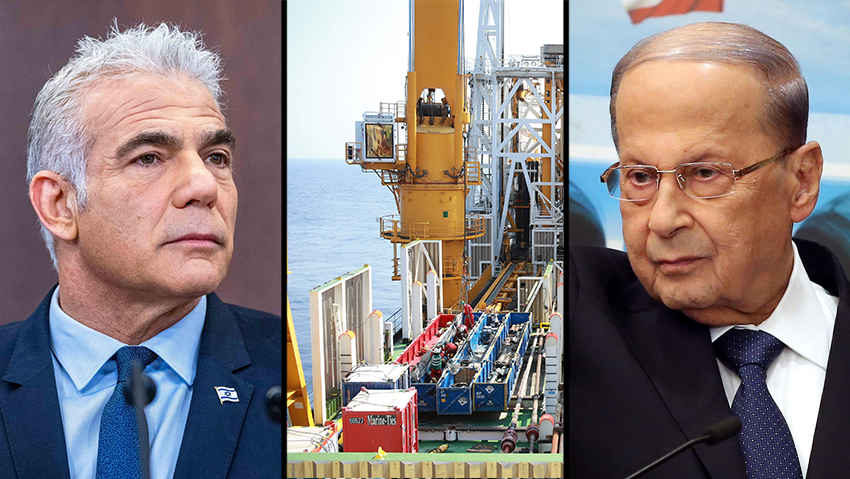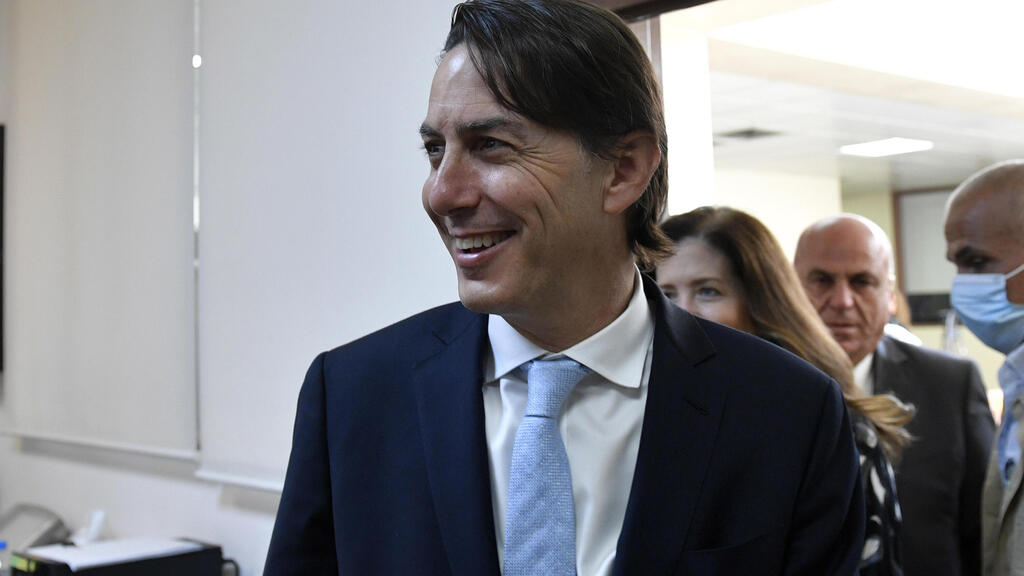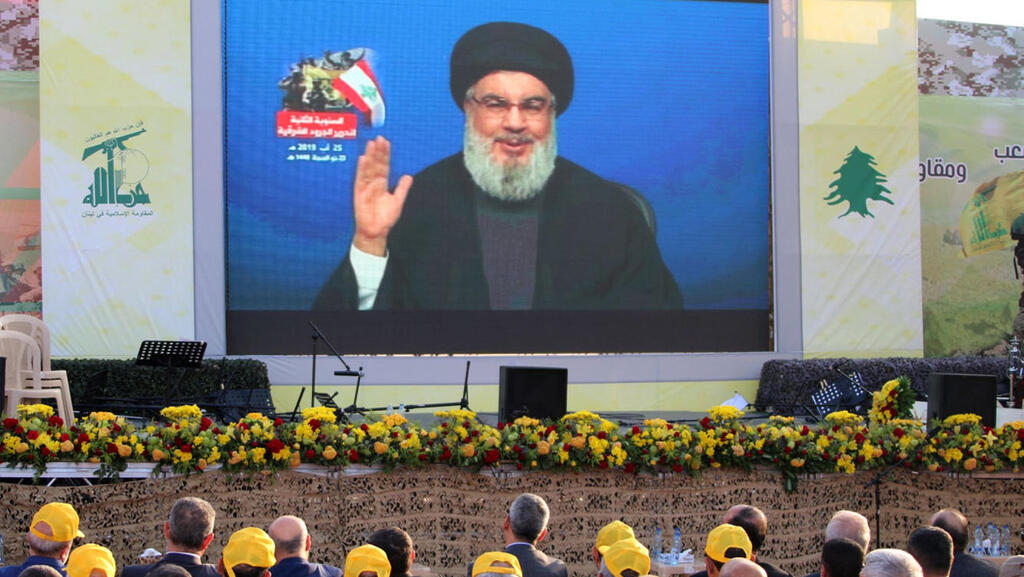Getting your Trinity Audio player ready...
Lebanon and Israel have received a final draft of a U.S.-mediated maritime border deal that satisfies all of their requirements and could imminently lead to a "historic deal," negotiators from the two countries said on Tuesday.
The deal’s final draft was tabled for review to both countries on Monday, with the two states saying the deal was acceptable to them. Israel last week rejected Lebanon's new amendments to the U.S.-brokered draft. Officials from both countries were in close contact via the U.S. mediator over the past few days in an effort to resolve outstanding differences.
3 View gallery


Prime Minister Yair Lpid, Karish gas rig, Lebanon President Michel Aoun
(Photo: Olivia Fitoussi, Orel Cogen, AFP, DALATI AND NOHRA)
"If everything goes well, Amos Hochstein's efforts could imminently lead to a historic deal," Lebanon's lead negotiator, Elias Bou Saab said minutes after receiving the draft from Hochstein, the U.S. official engaged in months of shuttle diplomacy to try to end the dispute.
National Security Advisor Eyal Hulata who headed the Israeli negotiating team echoed Saab's remarks. "All our demands were met, the changes that we asked for were corrected. We protected Israel's security interests and are on our way to an historic agreement," he said in a statement.
Energy Minister Karine Elharrar said the final draft addressed all of Israel's demands. “I know the agreement and its drafts well and thoroughly. Israel standing its ground proved effective. The agreement will now be brought for approval in the Knesset.”
Israeli officials also said on Tuesday that the agreement, along with map detailing it, will be presented to the public as soon as it is signed. According to the U.S., Lebanon will approve the deal officially first, followed by Israel. “There’s still a way ahead, but the road is clear,” officials said.
As the Knesset waits for Lebanon’s okay of the deal, the approval in Israel could prove complex. The agreement needs to be passed by an interim government, prior to the November 1 elections.
While limited in scope, an agreement would ease security and economic concerns in both countries, whose shared history is rife with conflict. The deal would resolve a territorial dispute in the eastern tip of the Mediterranean Sea in an area where Lebanon aims to explore for natural gas, and near waters where Israel has already found commercially viable quantities of hydrocarbons.
Hezbollah, a Lebanese political party and militia backed by Iran, has threatened to use force against Israel should Israel explore for gas near the disputed area before Lebanon is allowed to do so in its own maritime zone.
"We received minutes ago the final draft... Lebanon felt that it takes into consideration all of Lebanon's requirements and we believe that the other side should feel the same," Saab said.
Lebanon's president said that a deal would not signify a "partnership" with Israel, a country Lebanon does not recognize and officially regards as an enemy.
"We are avoiding a sure-fire war in the region," Lebanon's caretaker Prime Minister Najib Mikati said last week.



